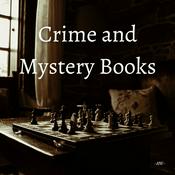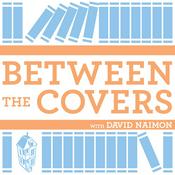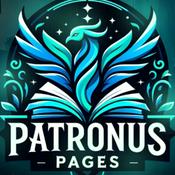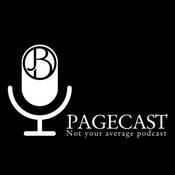Available Episodes
5 of 109
- S20E3: "Christmas Carol" by Sara Teasdale (S14 Encore)As befits the time of year, we will be reading six poems of Advent and Christmas. This series is a re-airing of episodes from Season 14. We have selected certain familiar ones, which may yet contain certain surprises in their authorship and composition history, as well as some less well-known pieces which we hope will help you better enjoy the late days of the year leading up to the great Feast of the Nativity of Christ the Lord. Today's poem is "Christmas Carol" by Sara Teasdale. Reading begins at timestamps 4:49 and 7:48. Christmas Carol by Sara Teasdale The kings they came from out the south, All dressed in ermine fine; They bore Him gold and chrysoprase, And gifts of precious wine. The shepherds came from out the north, Their coats were brown and old; They brought Him little new-born lambs— They had not any gold. The wise men came from out the east, And they were wrapped in white; The star that led them all the way Did glorify the night. The angels came from heaven high, And they were clad with wings; And lo, they brought a joyful song The host of heaven sings. The kings they knocked upon the door, The wise men entered in, The shepherds followed after them To hear the song begin. The angels sang through all the night Until the rising sun, But little Jesus fell asleep Before the song was done.--------9:57
- S20E2: "Mistletoe" by Walter de la Mare (S14 Encore)As befits the time of year, we will be re-visiting six poems of Advent and Christmas during this twentieth season of the Well-Read Poem. We have selected certain familiar ones, which may yet contain certain surprises in their authorship and composition history, as well as some less well-known pieces which we hope will help you better enjoy the late days of the year leading up to the great Feast of the Nativity of Christ the Lord. Today's poem is "Mistletoe" by Walter de la Mare. Reading begins at timestamps 5:23 and 8:10. Mistletoe by Walter de la Mare Sitting under the mistletoe (Pale-green, fairy mistletoe), One last candle burning low, All the sleepy dancers gone, Just one candle burning on, Shadows lurking everywhere: Some one came, and kissed me there. Tired I was; my head would go Nodding under the mistletoe (Pale-green, fairy mistletoe), No footsteps came, no voice, but only, Just as I sat there, sleepy, lonely, Stooped in the still and shadowy air Lips unseen—and kissed me there. This podcast is brought to you by The Literary Life Podcast. To find out more about from Thomas Banks, visit HouseofHumaneLetters.com.--------11:12
- S20E1: "The Magi" by William Butler Yeats (S14 Encore)As befits the time of year, we will be reading six poems of Advent and Christmas during this twentieth season of the Well-Read Poem. This series is a re-airing of episodes from Season 14. We have selected certain familiar ones, which may yet contain certain surprises in their authorship and composition history, as well as some less well-known pieces which we hope will help you better enjoy the late days of the year leading up to the great Feast of the Nativity of Christ the Lord. Today's poem is "The Magi" by William Butler Yeats. Reading begins at timestamps 4:51 and 9:39. The Magi by William Butler Yeats Now as at all times I can see in the mind's eye, In their stiff, painted clothes, the pale unsatisfied ones Appear and disappear in the blue depths of the sky With all their ancient faces like rain-beaten stones, And all their helms of silver hovering side by side, And all their eyes still fixed, hoping to find once more, Being by Calvary's turbulence unsatisfied, The uncontrollable mystery on the bestial floor.--------11:30
- S19E6: "Aubade" by Philip LarkinIn this 19th season of the Well Read Poem, the principal theme of the six poems selected is that of Death. We selected these poems to provide a variety of imaginative treatments of what Henry James called "The Distinguished Thing", drawing on the writings of poets of different centuries, cultures and perspectives. We hope they are enjoyable, illuminating, and not so dismal as to discolor anyone's summer. Today's selection is "Aubade" by Philip Larkin. Readings begin at timestamps 2:49 and 8:25. To learn more about this podcast and host Thomas Banks, visit https://www.theliterary.life/the-well-read-poem/.--------14:02
- S19E5: "The Twa Corbies" Anonymous ScottishIn this 19th season of the Well Read Poem, the principal theme of the six poems selected is that of Death. We selected these poems to provide a variety of imaginative treatments of what Henry James called "The Distinguished Thing", drawing on the writings of poets of different centuries, cultures and perspectives. We hope they are enjoyable, illuminating, and not so dismal as to discolor anyone's summer. Today's selection is "The Twa Corbies" of anonymous Scottish origin. Readings begin at timestamps 4:25 and 8:45. To learn more about this podcast and host Thomas Banks, visit https://www.theliterary.life/the-well-read-poem/. The Twa Corbies Anonymous, Scottish As I was walking all alane, I heard twa corbies making a mane; The tane unto the t'other say, 'Where sall we gang and dine the day?' 'In behind yon auld fail dyke, I wot there lies a new slain knight; And naebody kens that he lies there, But his hawk, his hound, and his lady fair. 'His hound is to the hunting gane, His hawk to fetch the wild-fowl hame, His lady's ta'en another mate, So we may make our dinner sweet. 'Ye'll sit on his white hause-bane, And I'll pike out his bonny blue een; Wi ae lock o his gowden hair, We'll theek our nest when it grows bare. 'Mony an ane for him makes mane, But nane sall ken whare he is gane; Oer his white banes, when they are bare, The wind sall blaw for evermair.'--------12:54
More Arts podcasts
Trending Arts podcasts
About The Well Read Poem
Because reading is interpretation, The Well Read Poem aims to teach you how to read with understanding! Hosted by poet Thomas Banks of The House of Humane Letters, these short episodes will introduce you to both well-known and obscure poets and will focus on daily recitation, historical and intellectual background, elements of poetry, light explication, and more!
Play this podcast daily and practice reciting! The next week, get a new poem. Grow in your understanding and love of poetry by learning how to read well! Brought to you by The Literary Life Podcast.
Podcast websiteListen to The Well Read Poem, ill-advised by Bill Nighy and many other podcasts from around the world with the radio.net app
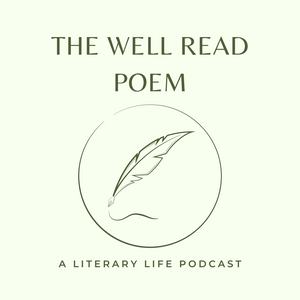
Get the free radio.net app
- Stations and podcasts to bookmark
- Stream via Wi-Fi or Bluetooth
- Supports Carplay & Android Auto
- Many other app features
Get the free radio.net app
- Stations and podcasts to bookmark
- Stream via Wi-Fi or Bluetooth
- Supports Carplay & Android Auto
- Many other app features


The Well Read Poem
Scan code,
download the app,
start listening.
download the app,
start listening.
















